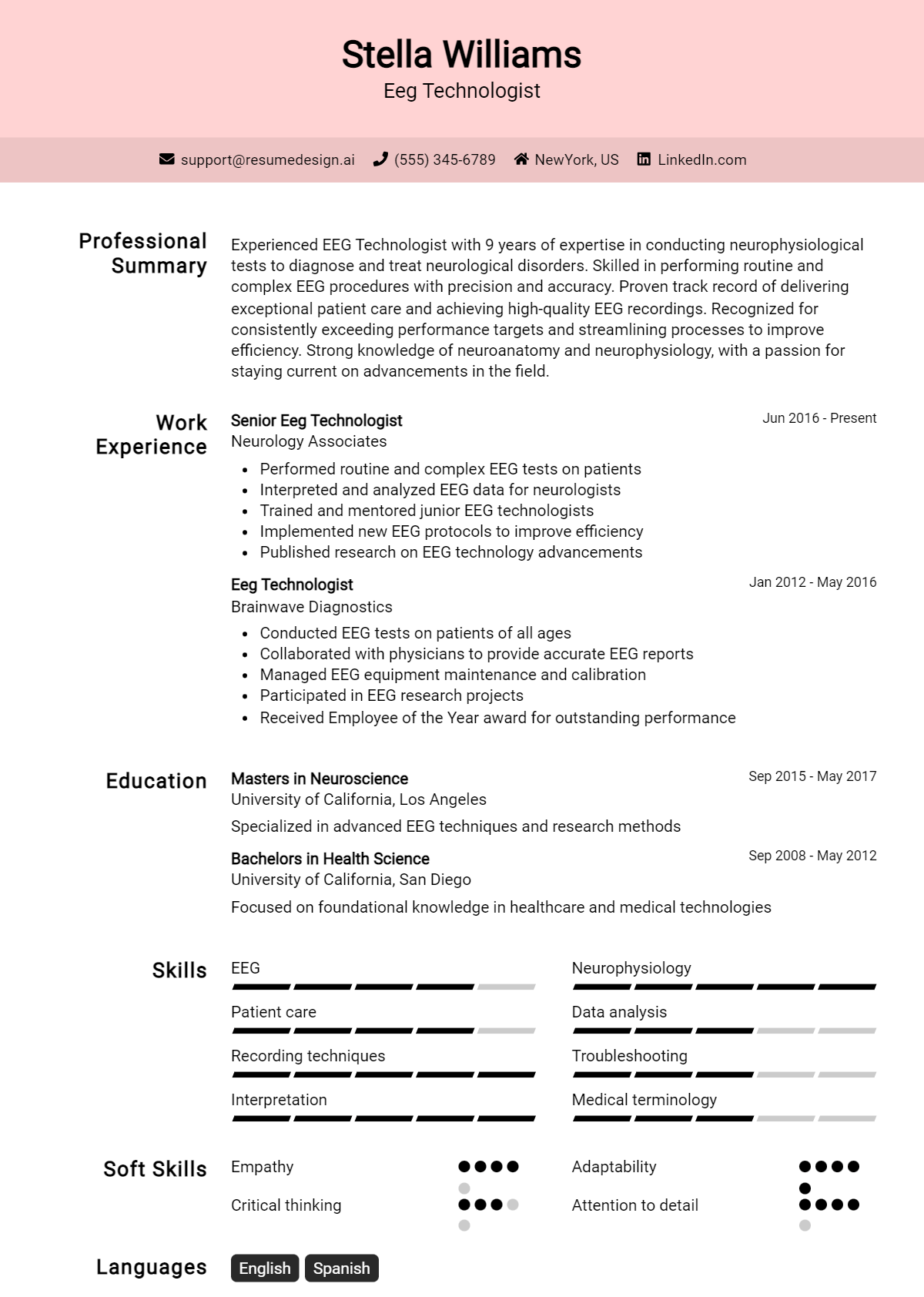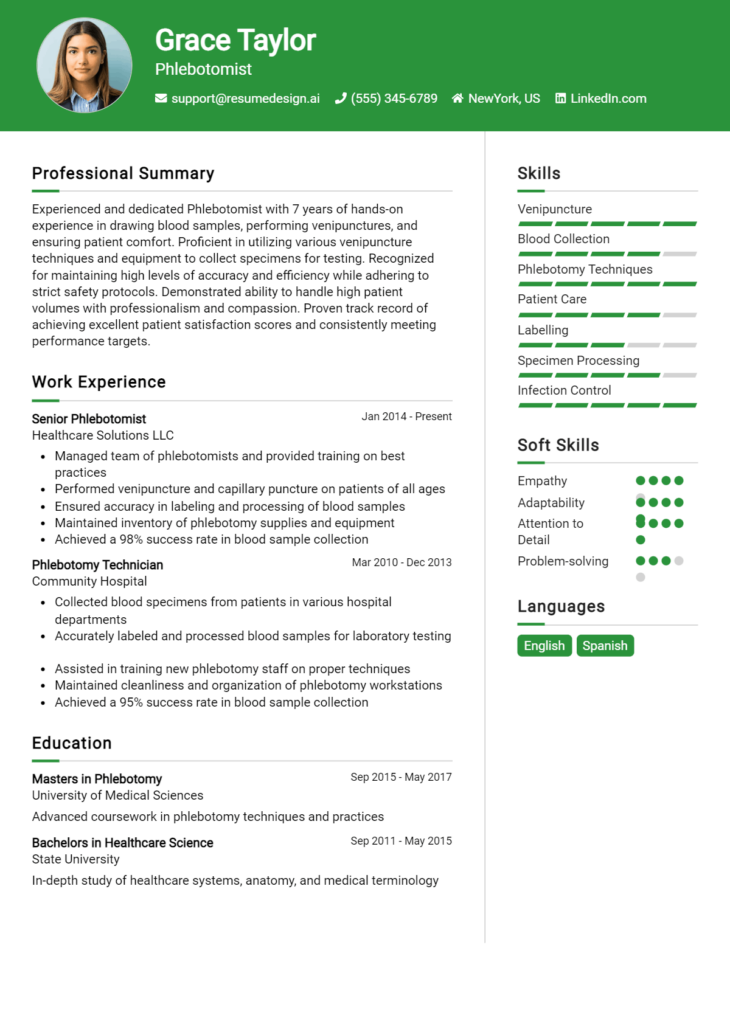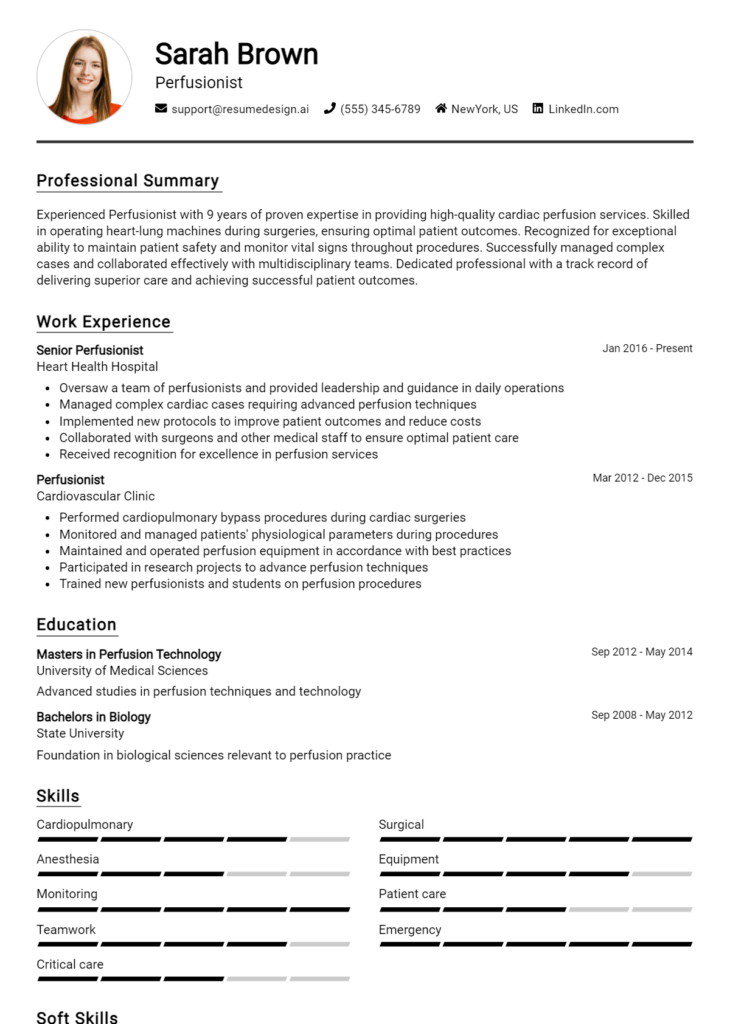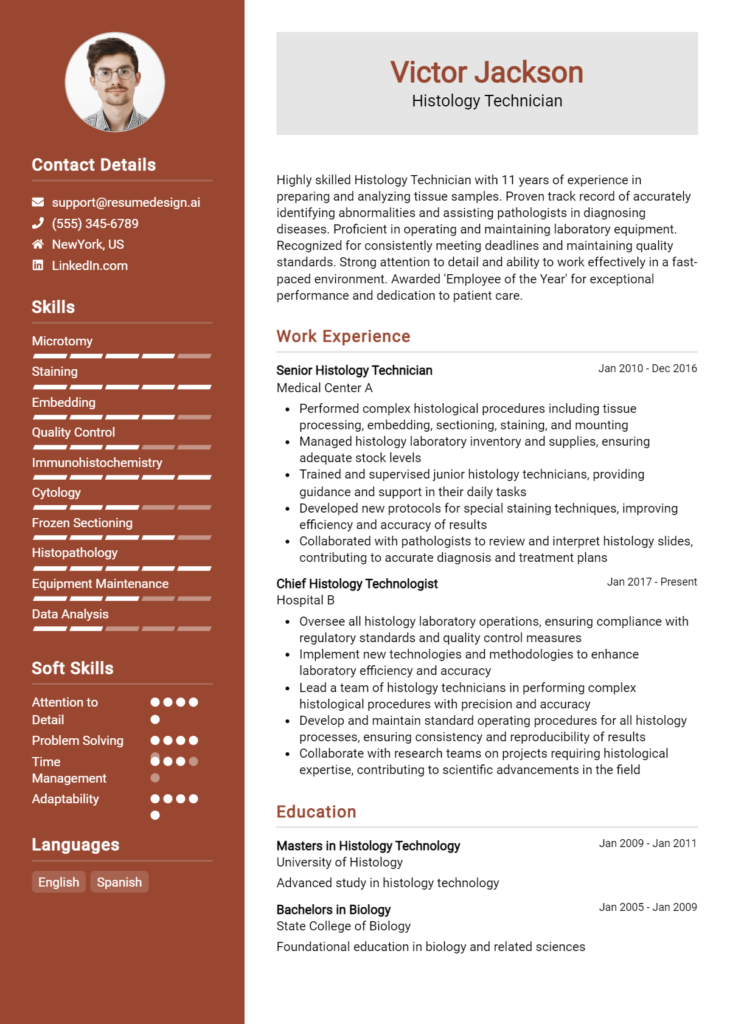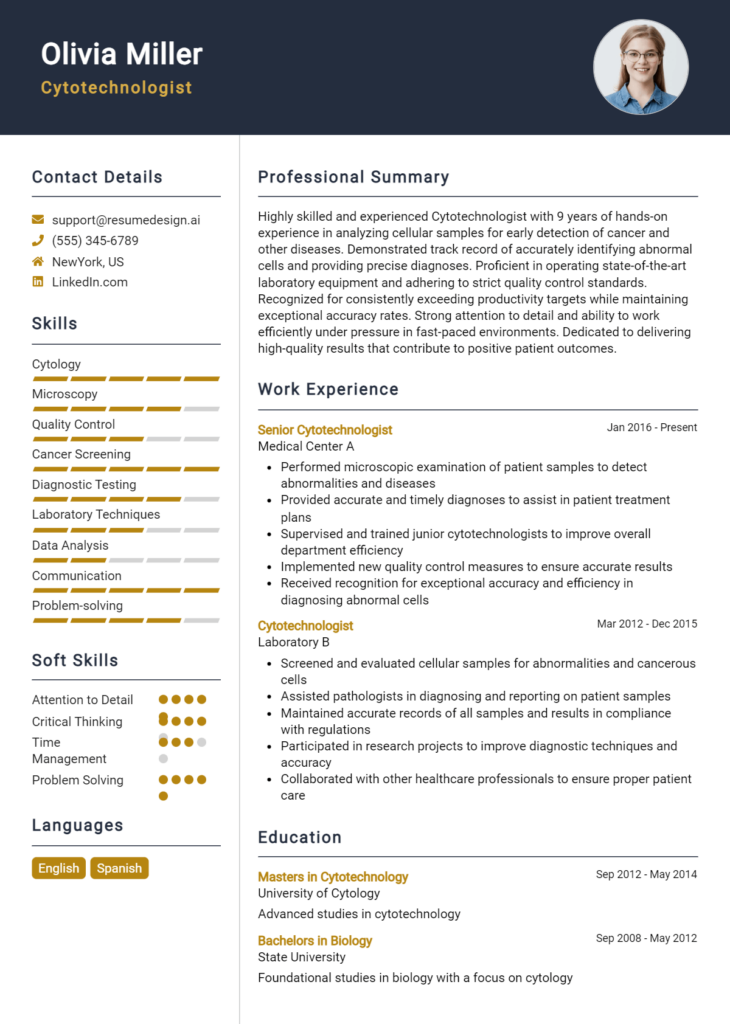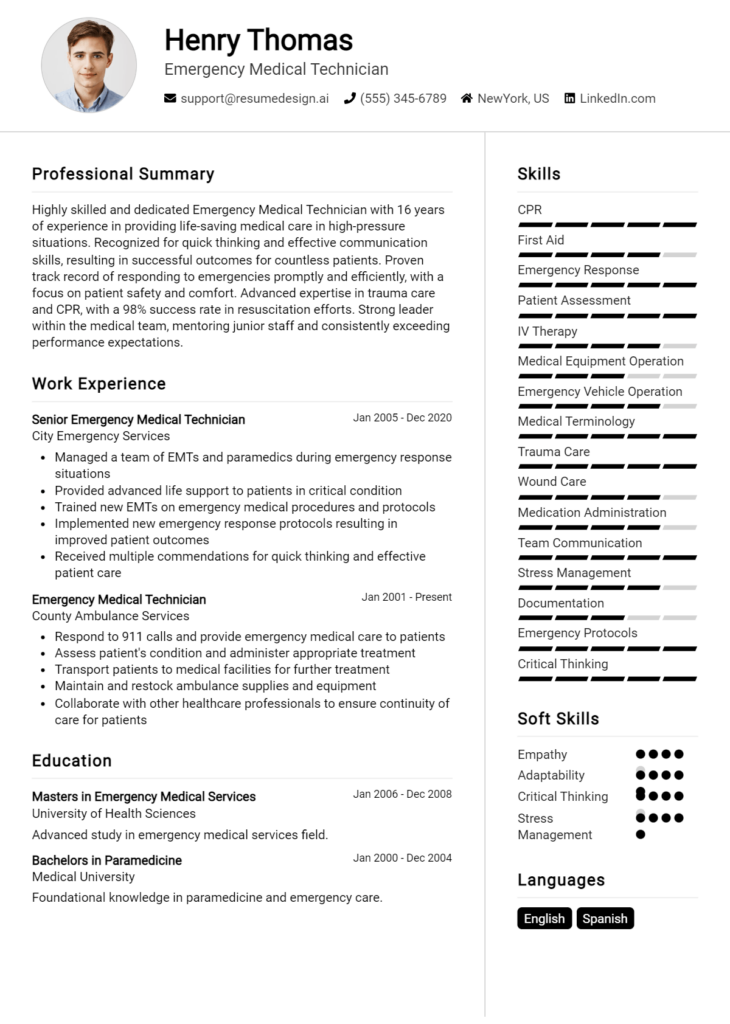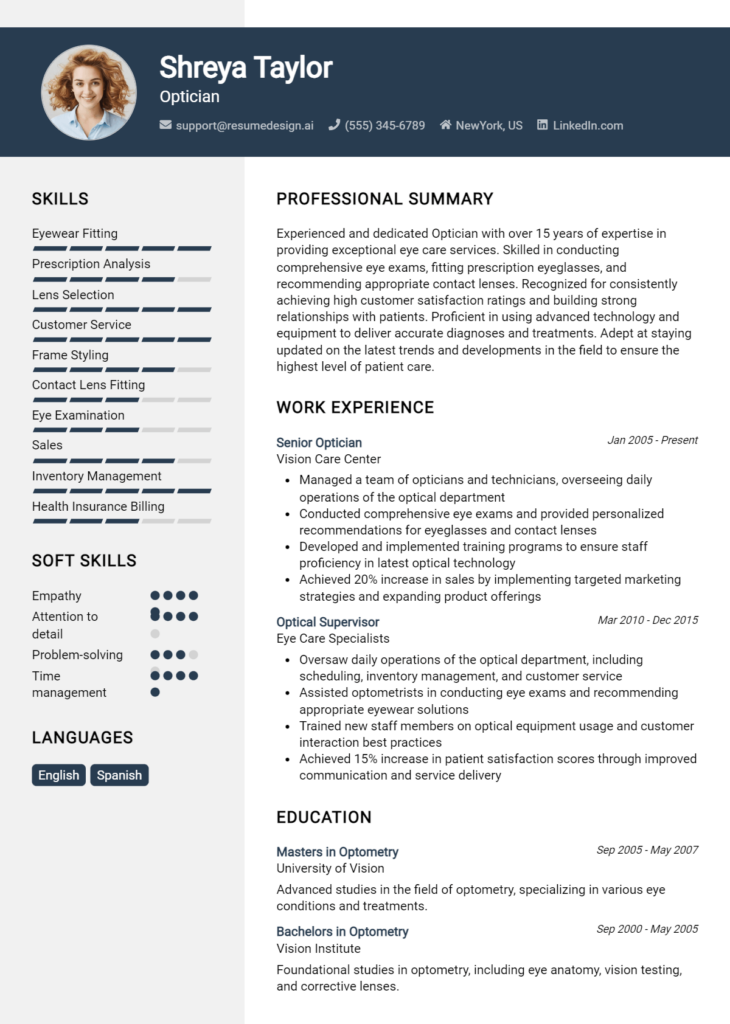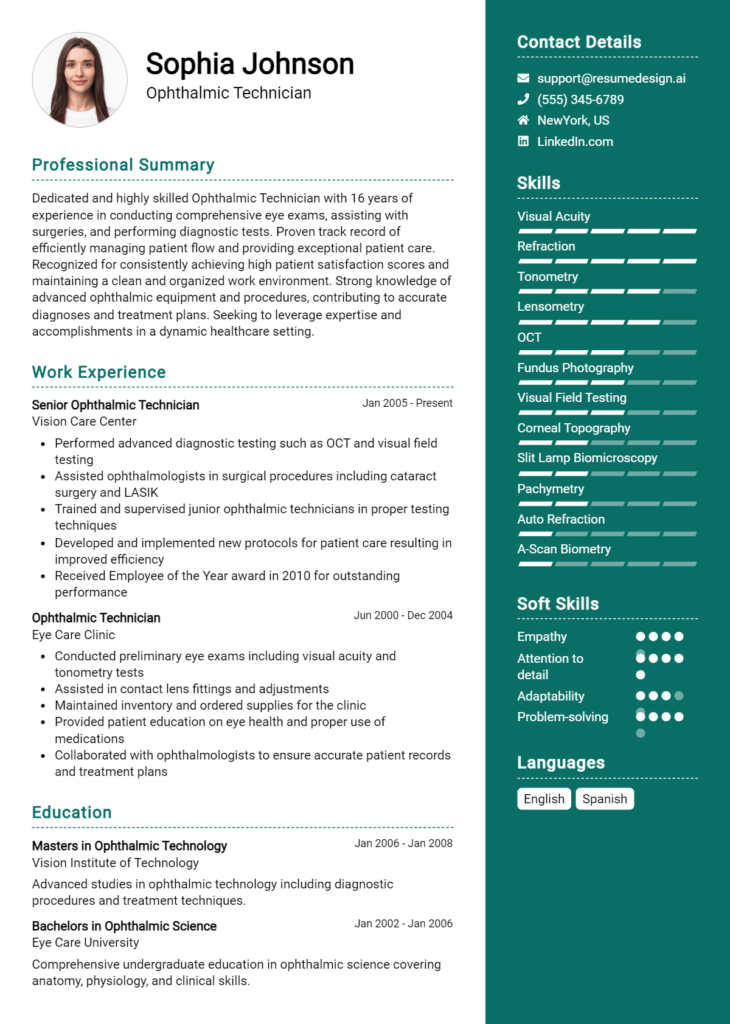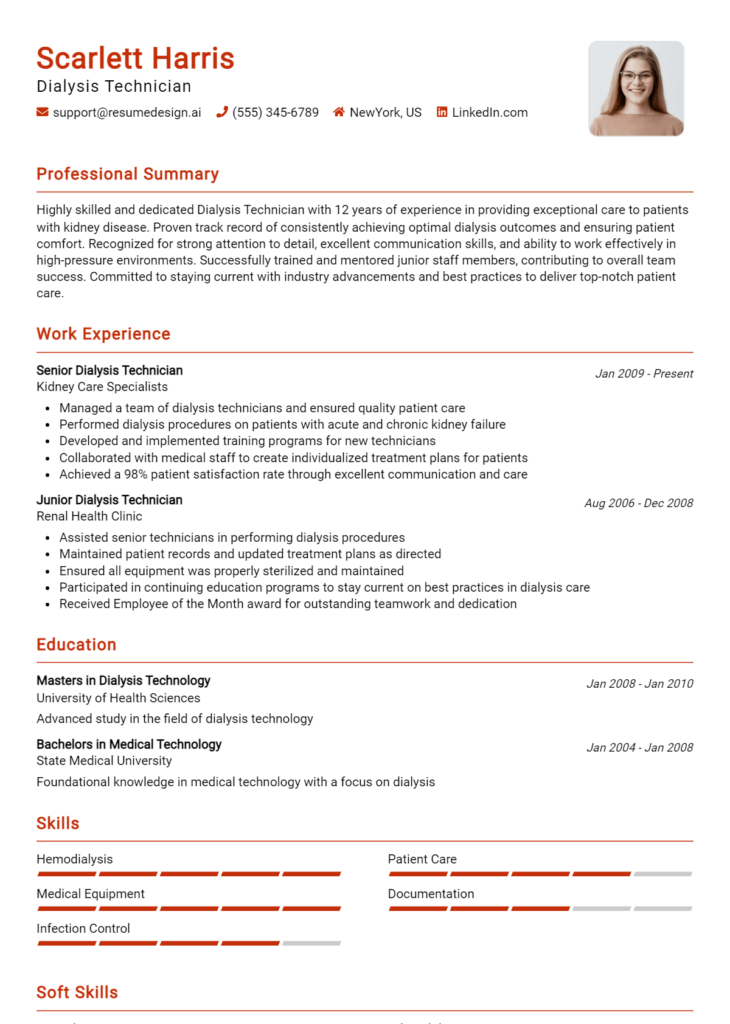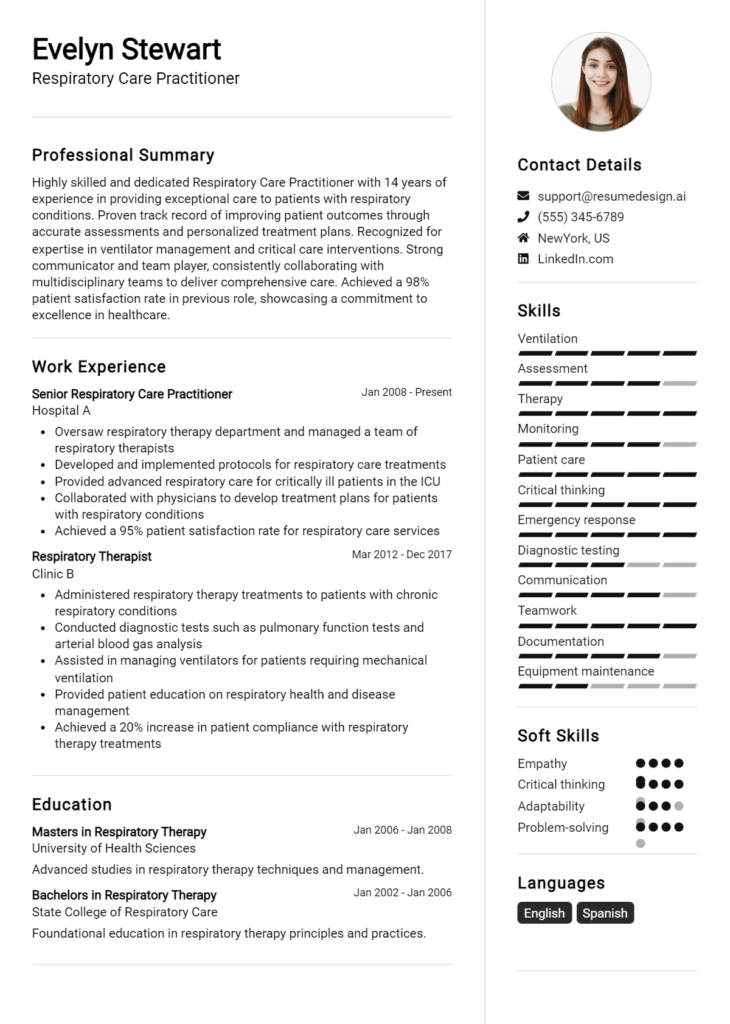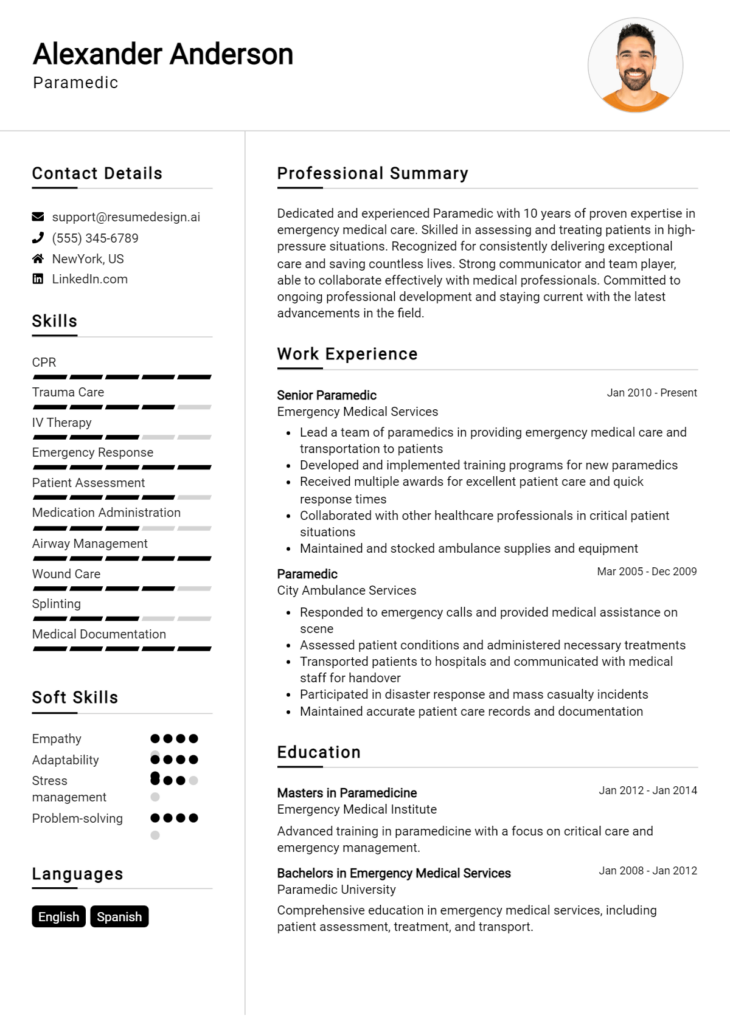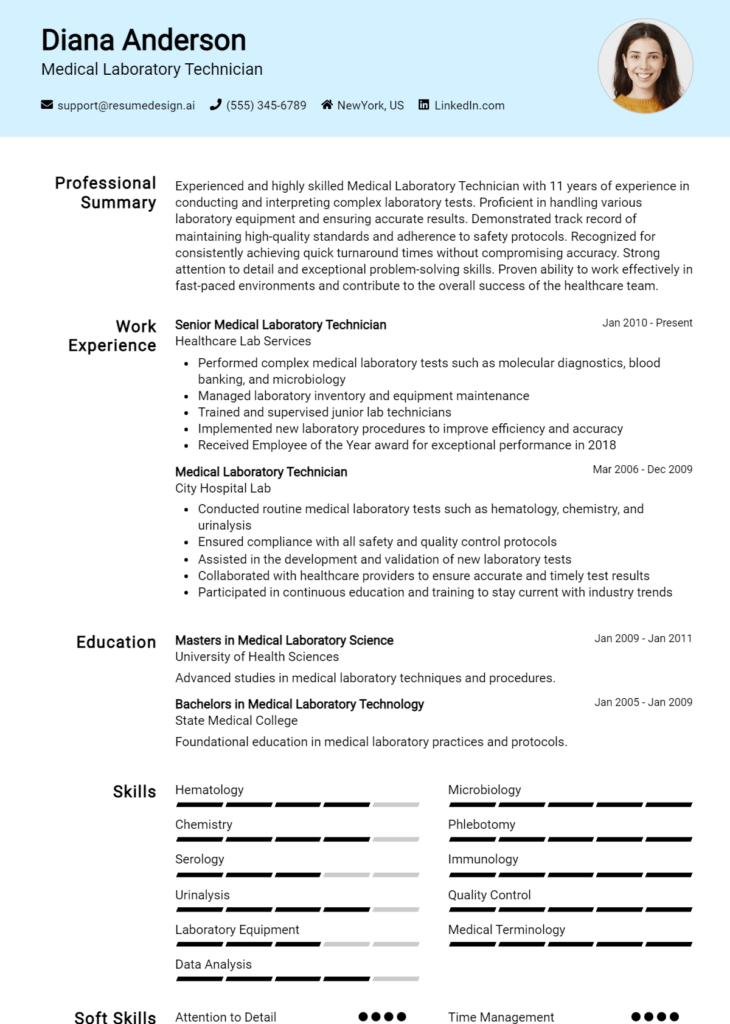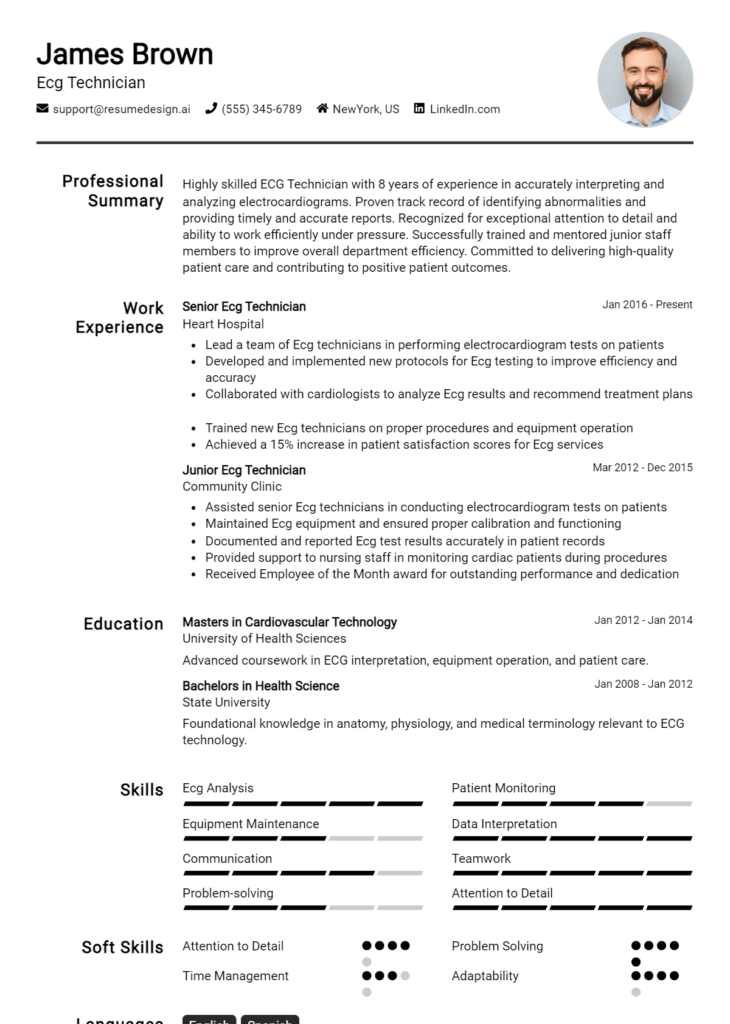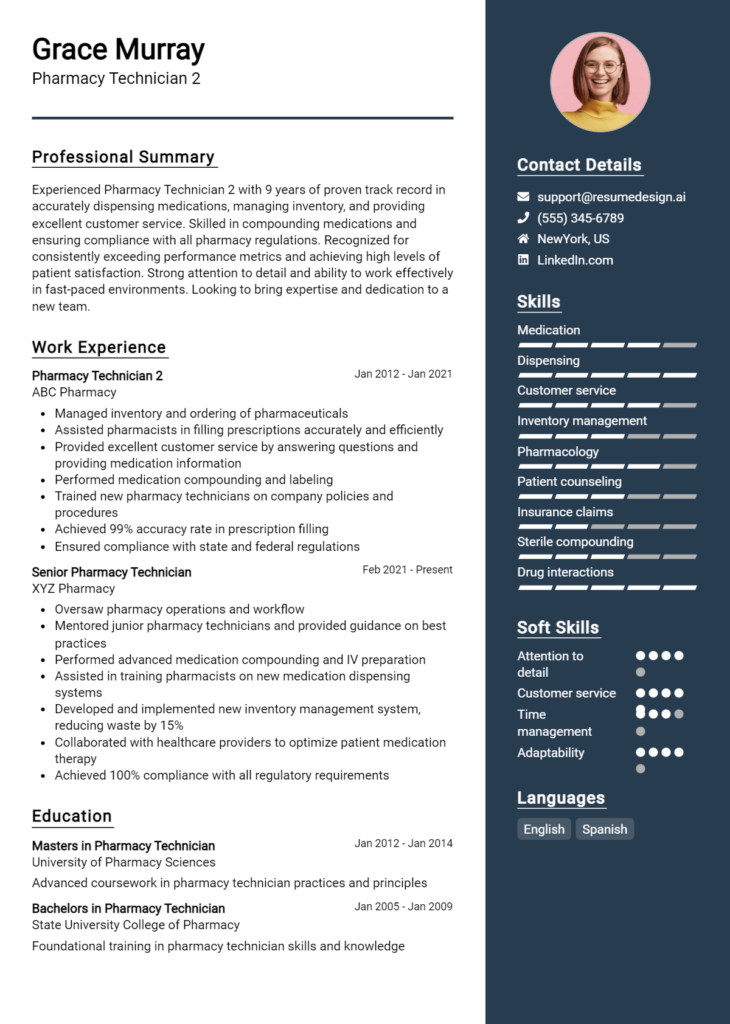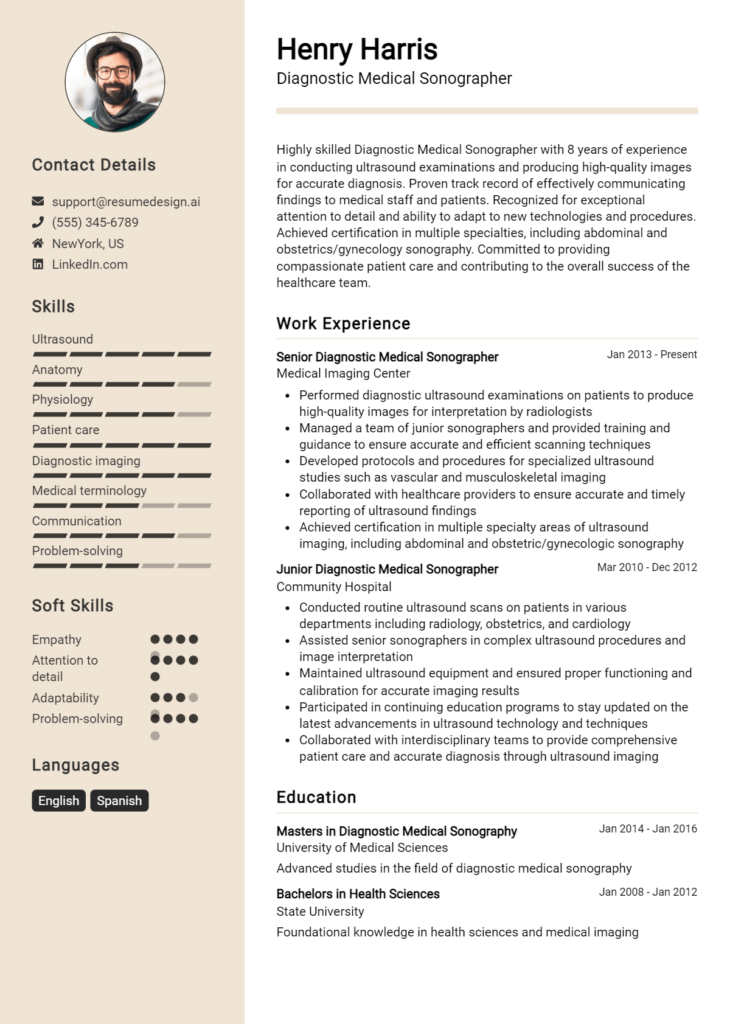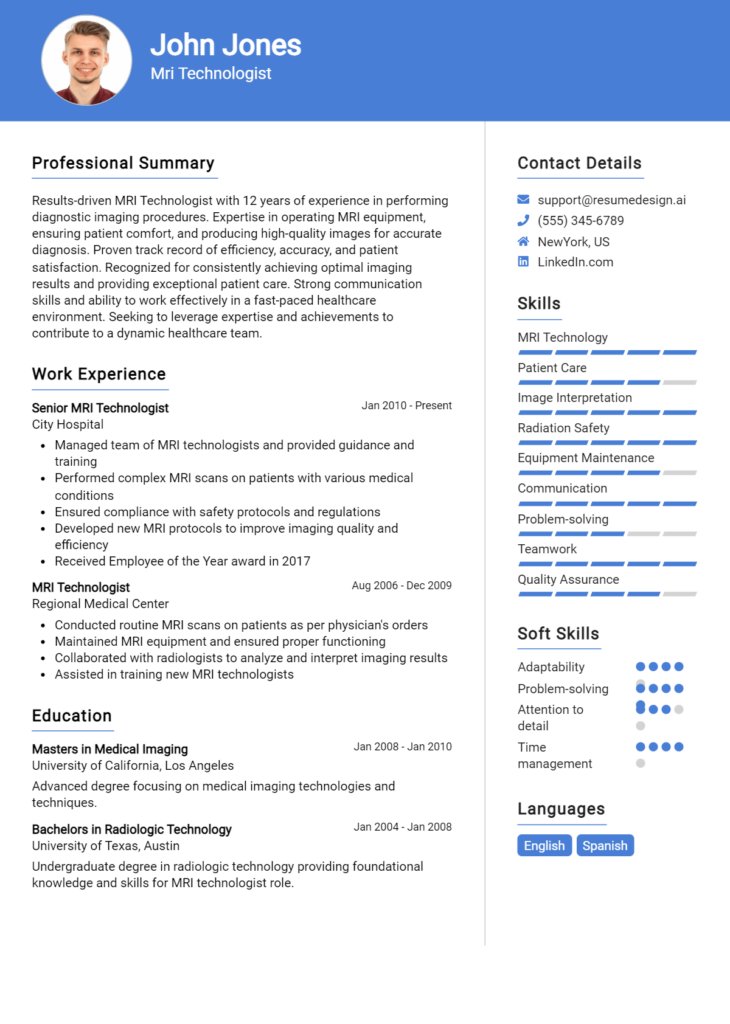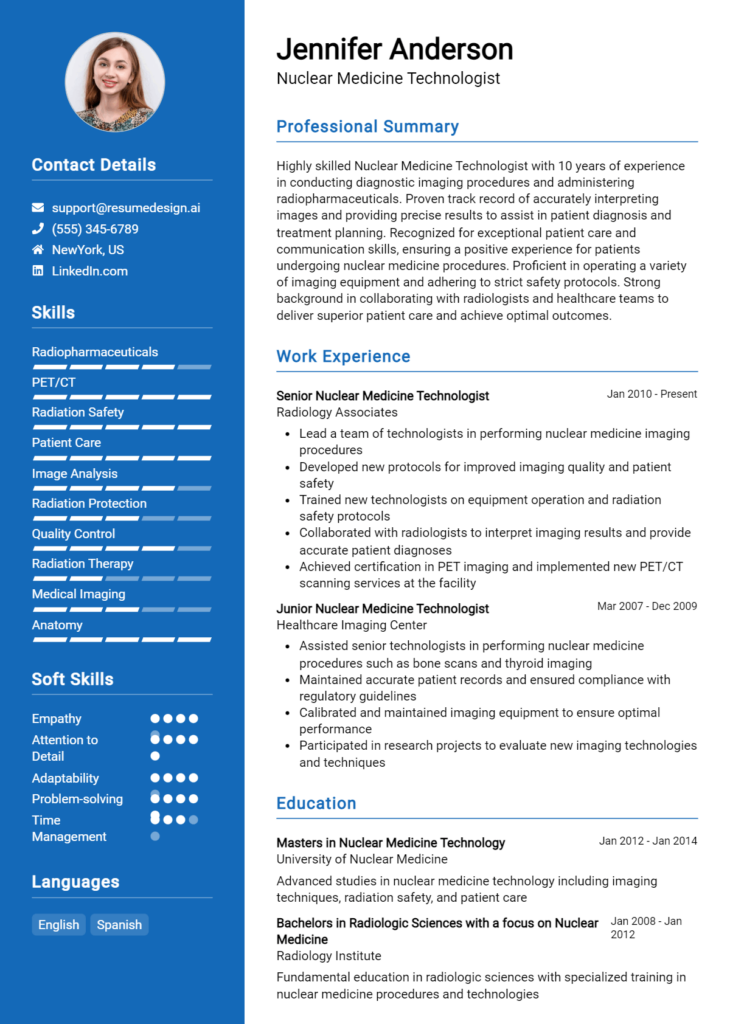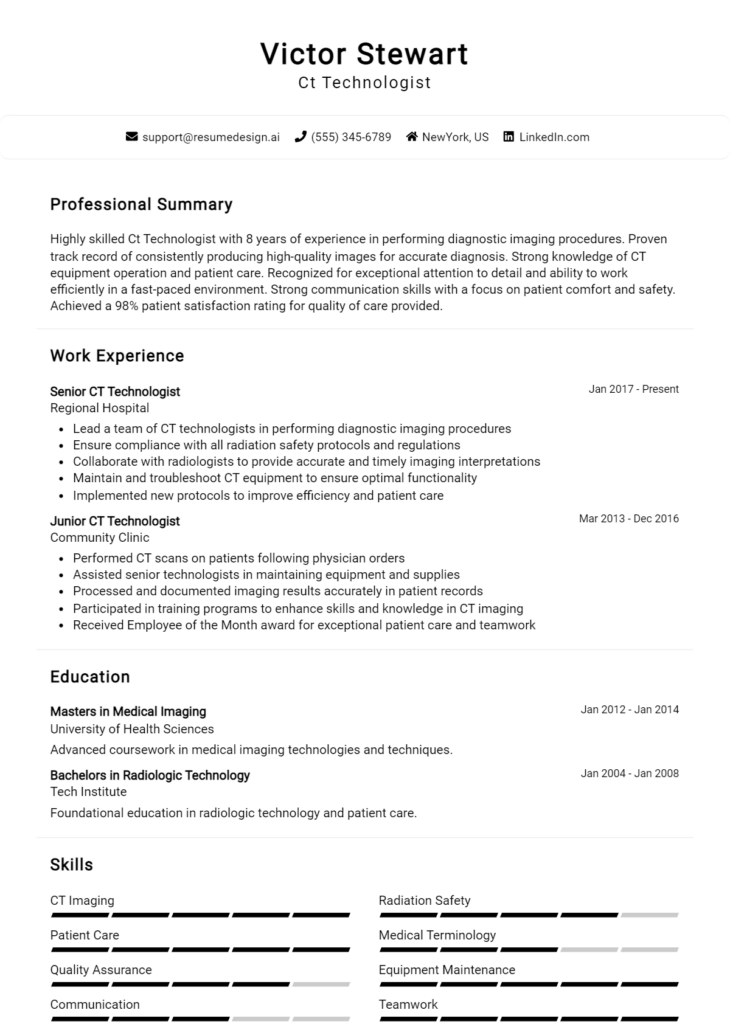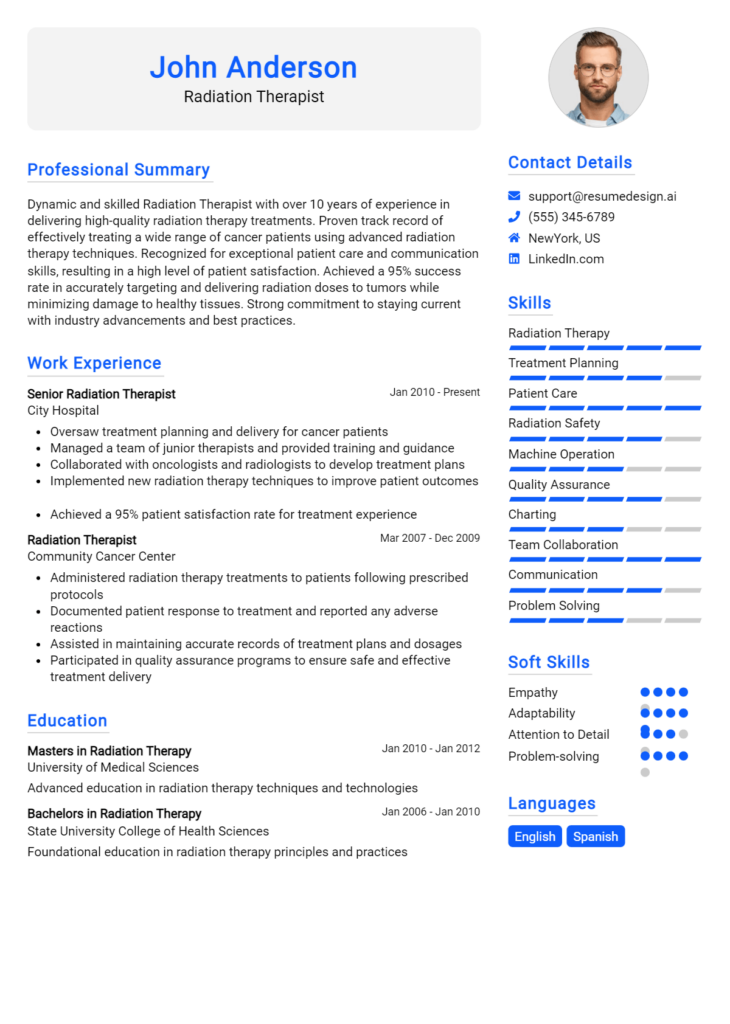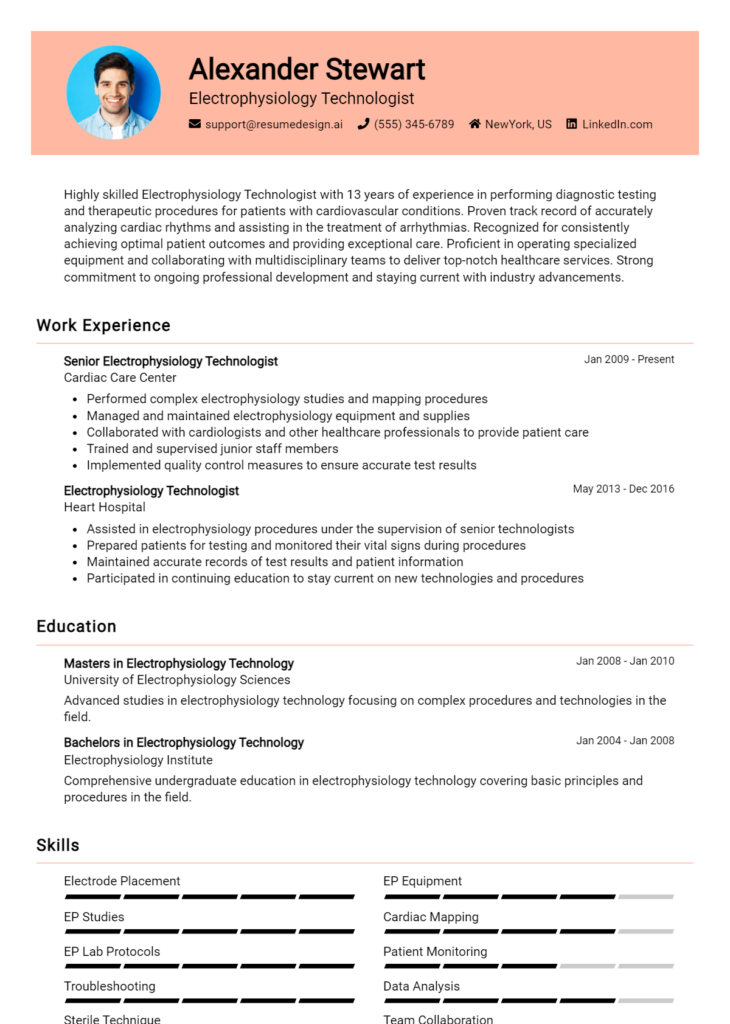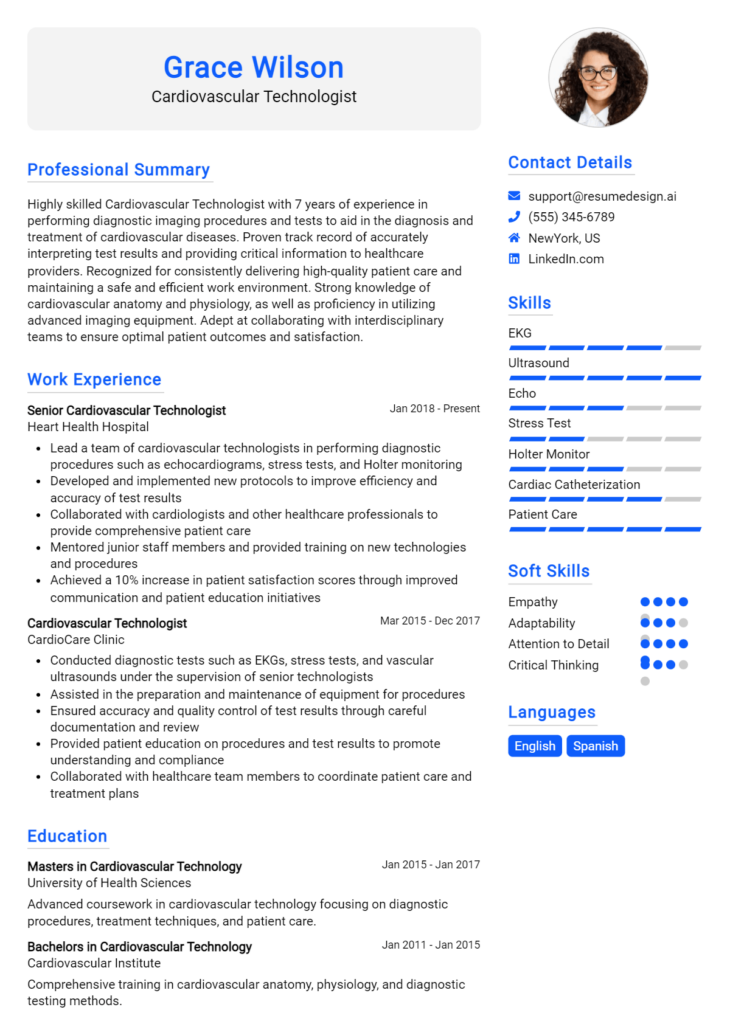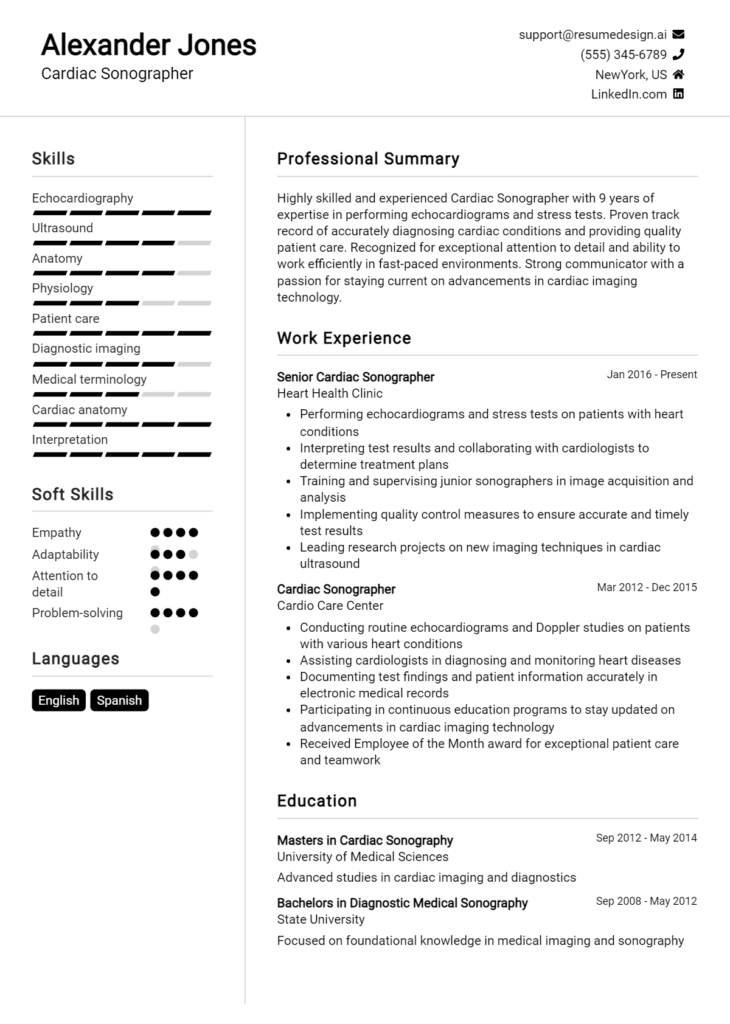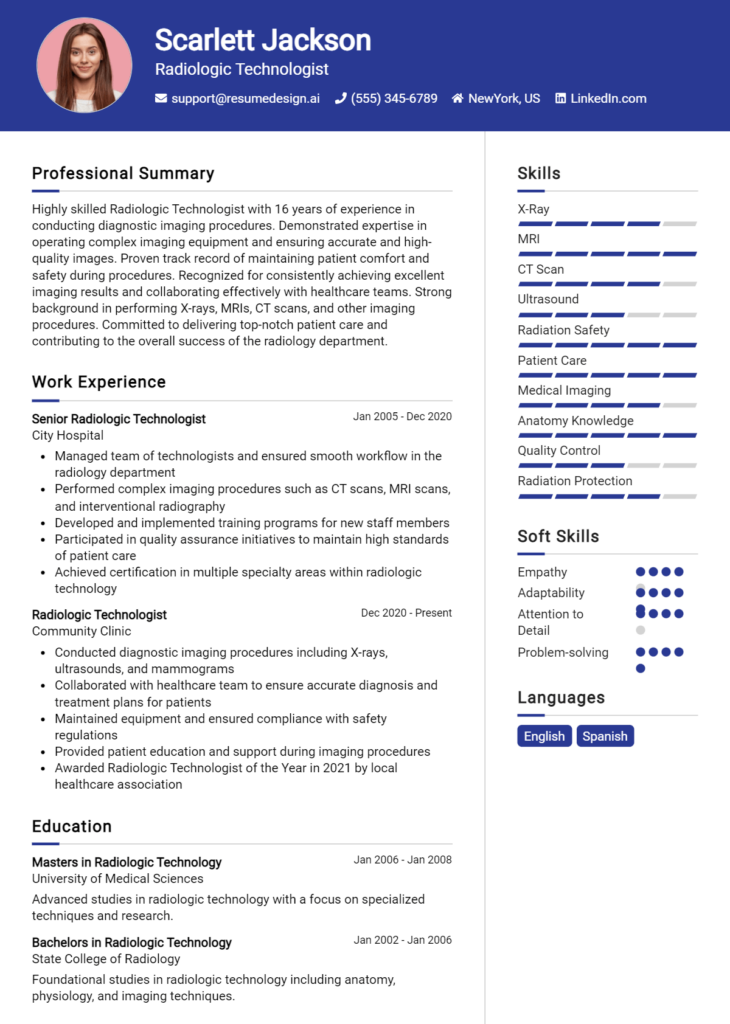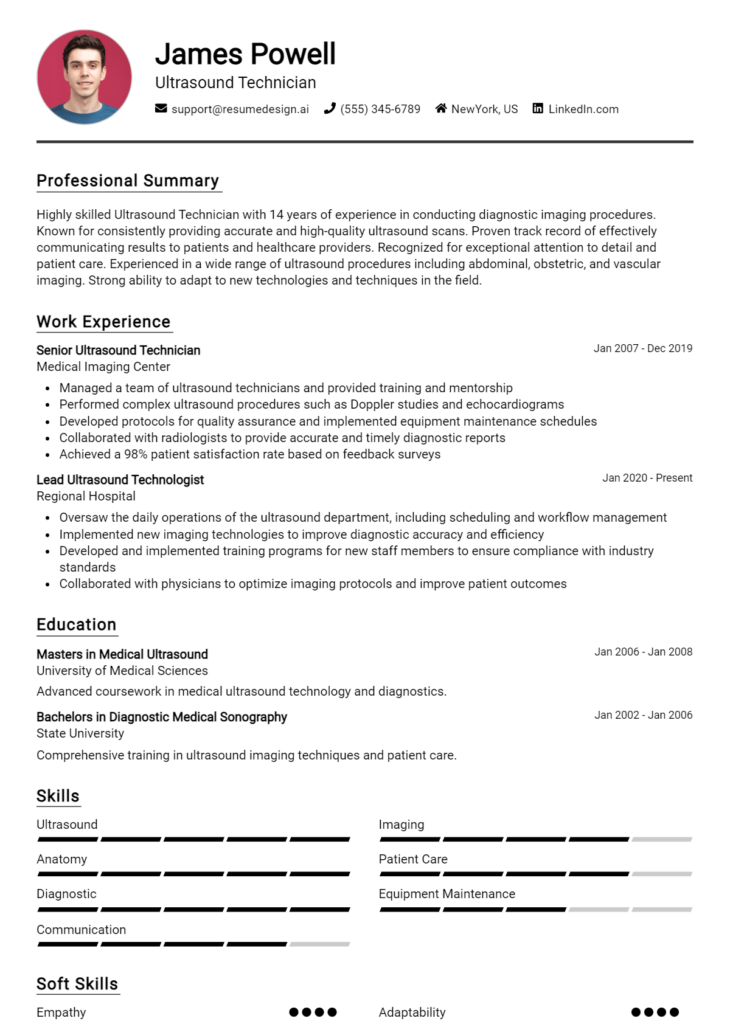EEG Technologist Core Responsibilities
EEG Technologists play a crucial role in healthcare, functioning at the intersection of neurology, patient care, and technology. Their core responsibilities include conducting electroencephalograms, preparing patients, and ensuring the accuracy of readings. Essential skills encompass technical proficiency, operational management, and problem-solving abilities, vital for troubleshooting equipment and interpreting results. These competencies contribute significantly to the organization’s goals by enhancing patient outcomes and facilitating effective interdisciplinary communication. A well-structured resume can effectively highlight these qualifications, showcasing the professional's readiness to excel in this dynamic role.
Common Responsibilities Listed on EEG Technologist Resume
- Performing EEG tests and monitoring brain activity.
- Preparing patients for procedures and explaining the process.
- Setting up and calibrating EEG equipment.
- Recording and analyzing EEG data for neurological assessments.
- Maintaining accurate patient records and documentation.
- Collaborating with neurologists and other healthcare professionals.
- Troubleshooting technical issues with EEG machines.
- Ensuring compliance with safety and quality standards.
- Educating patients and families about EEG procedures.
- Participating in ongoing training and professional development.
- Assisting in research projects related to neurological disorders.
- Monitoring patients during sleep studies and other evaluations.
High-Level Resume Tips for EEG Technologist Professionals
A well-crafted resume is essential for EEG Technologist professionals, as it serves as the first impression a candidate makes on a potential employer. In a competitive job market, your resume must not only highlight your technical skills and clinical expertise but also showcase your achievements in a compelling manner. It acts as a marketing tool, emphasizing the unique qualities that set you apart from other candidates. This guide will provide practical and actionable resume tips specifically tailored for EEG Technologist professionals, ensuring you present your qualifications in the best light possible.
Top Resume Tips for EEG Technologist Professionals
- Tailor your resume to the specific job description, using keywords and phrases that match the employer's requirements.
- Highlight relevant experience in EEG procedures, including any specialized techniques or technologies you are proficient in.
- Quantify your achievements by including metrics, such as the number of successful EEG tests conducted or improvements in patient outcomes.
- Showcase your certifications and training, particularly those recognized in the EEG field, to demonstrate your commitment to professional development.
- Include a professional summary at the top of your resume that succinctly captures your skills and career objectives.
- Utilize action verbs to describe your responsibilities and accomplishments, enhancing the impact of your contributions.
- List any relevant software or equipment you are familiar with, such as EEG monitoring systems and data analysis tools.
- Incorporate soft skills that are essential for the role, such as communication, teamwork, and problem-solving abilities.
- Ensure your resume is well-organized and easy to read, with clear headings and bullet points to improve readability.
- Proofread your resume thoroughly to eliminate any spelling or grammatical errors that could detract from your professionalism.
By implementing these tips, you can significantly increase your chances of landing a job in the EEG Technologist field. A polished and targeted resume will not only highlight your qualifications but also demonstrate your understanding of the role and your enthusiasm for contributing to patient care and neurological health.
Why Resume Headlines & Titles are Important for EEG Technologist
In the competitive field of EEG technology, a resume headline or title serves as a crucial first impression for hiring managers. A strong headline can immediately capture attention and encapsulate a candidate's key qualifications in a succinct and impactful manner. For EEG Technologists, who are responsible for conducting electroencephalograms and interpreting brain activity, a well-crafted headline can highlight specialized skills, relevant experience, and professional accomplishments. It should be concise, directly relevant to the job being applied for, and tailored to reflect the unique strengths of the candidate, ensuring that it resonates with potential employers.
Best Practices for Crafting Resume Headlines for EEG Technologist
- Keep it concise—use 10 words or fewer to convey your expertise.
- Make it role-specific—incorporate terms and phrases relevant to EEG technology.
- Highlight key qualifications—focus on certifications, skills, or achievements.
- Use action-oriented language—start with strong verbs to convey dynamism.
- Tailor for each application—customize your headline based on the job description.
- Include relevant metrics or results—quantify achievements when possible.
- Avoid jargon—ensure clarity and accessibility for all hiring managers.
- Use keywords—incorporate industry-relevant keywords to enhance visibility.
Example Resume Headlines for EEG Technologist
Strong Resume Headlines
Certified EEG Technologist with 5 Years of Clinical Experience
Detail-Oriented EEG Specialist with Proven Patient Care Skills
Skilled EEG Technologist with Expertise in Neurodiagnostic Procedures
Accomplished EEG Technician with a Track Record of Accurate Diagnoses
Weak Resume Headlines
Looking for a Job in Healthcare
Technologist with Some Experience
Strong headlines are effective because they clearly articulate the candidate's core competencies and achievements, making an immediate impact on hiring managers. They showcase relevant skills and experience, while also being specific and action-oriented. In contrast, weak headlines fail to impress as they lack specificity, provide no indication of the candidate's qualifications, and do not convey a sense of purpose or professionalism. By avoiding vagueness and making a strong first impression, candidates can significantly improve their chances of standing out in the job market.
Writing an Exceptional EEG Technologist Resume Summary
A well-crafted resume summary is crucial for EEG Technologists, as it serves as the first impression for hiring managers. This concise snapshot of your professional identity quickly conveys your key skills, relevant experience, and significant accomplishments, making it easier for employers to see the value you bring to their team. A strong resume summary should be impactful and tailored specifically to the job you are applying for, capturing the essence of your qualifications in just a few sentences. By doing so, you not only grab the attention of hiring managers but also set the tone for the rest of your resume, encouraging them to delve deeper into your application.
Best Practices for Writing a EEG Technologist Resume Summary
- Quantify achievements where possible to add credibility and context.
- Focus on relevant skills that align with the job description.
- Use specific terminology related to EEG technology and procedures.
- Tailor your summary for each job application to reflect the unique requirements of the position.
- Highlight any certifications or specialized training that enhance your qualifications.
- Keep it concise, ideally within 3-5 sentences, to maintain the reader's attention.
- Showcase your ability to work collaboratively with healthcare teams and communicate effectively with patients.
- Emphasize any experience with advanced EEG equipment or software relevant to the job role.
Example EEG Technologist Resume Summaries
Strong Resume Summaries
Dedicated EEG Technologist with over 5 years of experience in performing and analyzing EEG tests, achieving a 98% accuracy rate in diagnostic interpretations. Skilled in patient care and education, resulting in a 30% increase in patient satisfaction scores at previous facility.
Results-driven EEG Technologist with a proven track record of conducting over 1,000 EEG procedures while maintaining compliance with safety standards. Recognized for implementing efficient workflow processes that reduced patient wait times by 20%.
Certified EEG Technologist proficient in advanced neurodiagnostic techniques and technologies, with expertise in pediatric and adult patient populations. Successfully collaborated with multidisciplinary teams, contributing to a 15% improvement in patient outcomes.
Weak Resume Summaries
Experienced EEG Technologist looking for a new opportunity in a healthcare setting. I have skills in EEG and patient care.
I am an EEG professional with some years of experience. I am good at working with patients and performing tests.
The strong resume summaries are considered effective because they provide specific details about the candidate's experience, quantify achievements, and clearly articulate relevant skills that match the EEG Technologist role. In contrast, the weak summaries lack specificity and quantifiable outcomes, making them appear generic and less compelling to potential employers. By clearly outlining accomplishments and relevant expertise, strong summaries create a persuasive narrative that engages hiring managers right from the start.
Work Experience Section for EEG Technologist Resume
The work experience section of an EEG Technologist resume is crucial for demonstrating the candidate's technical skills, leadership capabilities, and commitment to delivering high-quality patient care. This section serves as a platform to showcase not only the relevant experience in performing and interpreting electroencephalograms but also the ability to manage teams and ensure compliance with industry standards. By quantifying achievements and aligning past responsibilities with recognized practices in the field, candidates can effectively illustrate their value to potential employers, making a compelling case for their expertise and professionalism.
Best Practices for EEG Technologist Work Experience
- Highlight specific EEG techniques and technologies used, demonstrating technical expertise.
- Quantify accomplishments with metrics, such as the number of successful procedures performed or improvements in patient outcomes.
- Include team management experience, showcasing your ability to lead and collaborate effectively.
- Align your experience with industry standards, using relevant terminology and practices recognized in the field.
- Detail any continuing education or certifications obtained that bolster your qualifications.
- Use action verbs to convey accomplishments and responsibilities clearly and concisely.
- Focus on patient care quality, emphasizing how your work has positively impacted patient experiences.
- Tailor your work experience section to match the job description of the position you're applying for, ensuring relevance.
Example Work Experiences for EEG Technologist
Strong Experiences
- Performed over 500 EEG tests annually, achieving a 98% accuracy rate in results interpretation, which led to early diagnosis of neurological disorders.
- Led a team of 5 EEG technicians, implementing a training program that improved departmental efficiency by 20% and reduced patient wait times.
- Collaborated with neurologists to streamline EEG reporting processes, resulting in a 15% decrease in turnaround time for patient diagnoses.
- Developed and executed a quality assurance protocol that increased compliance with healthcare regulations by 30% within one year.
Weak Experiences
- Assisted with EEG tests and other procedures.
- Worked in a healthcare setting for a few years.
- Helped with patient care and documentation.
- Maintained equipment and ensured it was ready for use.
The examples listed above demonstrate the distinct differences between strong and weak experiences. Strong experiences are characterized by specific, quantifiable outcomes and leadership roles that highlight technical expertise and collaborative efforts. In contrast, weak experiences lack detail and measurable achievements, making them less impactful and failing to effectively communicate the candidate's contributions and qualifications in the field of EEG technology.
Education and Certifications Section for EEG Technologist Resume
The education and certifications section of an EEG Technologist resume plays a crucial role in establishing a candidate's qualifications and expertise in the field. This section not only showcases the candidate's academic background but also emphasizes their commitment to continuous learning and professional development through industry-relevant certifications. By providing relevant coursework, certifications, and any specialized training, candidates can significantly enhance their credibility and demonstrate their alignment with the specific requirements of the EEG Technologist role. Employers seek candidates who not only possess the necessary knowledge but also show a proactive approach to keeping their skills updated in this rapidly evolving field.
Best Practices for EEG Technologist Education and Certifications
- Include only relevant degrees and certifications that pertain to EEG technology or neurodiagnostics.
- List certifications in order of relevance, starting with the most recognized or advanced credentials.
- Provide details about specialized training programs that enhance your expertise in EEG procedures.
- Highlight any coursework that directly relates to EEG technology, neuroanatomy, or related disciplines.
- Keep the format consistent and easy to read, using bullet points for clarity.
- Update this section regularly to include new certifications or training completed.
- Consider including any affiliations with professional organizations related to EEG technology.
- Be specific about certification dates and expiration where applicable to showcase your current qualifications.
Example Education and Certifications for EEG Technologist
Strong Examples
- Associate of Applied Science in Electroencephalographic Technology, XYZ Community College, 2023
- Registered Electroencephalographic Technologist (R.EEG.T.), American Board of Registration of Electroencephalographic and Evoked Potential Technologists, 2023
- Certification in Basic Life Support (BLS), American Heart Association, 2022
- Completed coursework in Neuroanatomy and EEG Signal Processing, XYZ University, 2022
Weak Examples
- Bachelor of Arts in Psychology, ABC University, 2010
- Outdated certification in Basic Electroencephalography, 2015
- High School Diploma, DEF High School, 2008
- Certification in Medical Billing and Coding, 2019
The strong examples are considered effective because they are directly relevant to the EEG Technologist role, reflecting recent education and certifications that align with current industry standards. They demonstrate a focused commitment to the field and highlight qualifications that employers find valuable. Conversely, the weak examples lack relevance to EEG technology, contain outdated certifications, or represent qualifications that do not pertain to the role, which may detract from the candidate's appeal to potential employers.
Top Skills & Keywords for EEG Technologist Resume
As an EEG Technologist, possessing a well-rounded skill set is crucial for success in this specialized field. A strong resume that highlights both hard and soft skills can significantly enhance your chances of landing an interview. Employers look for candidates who not only have technical expertise in operating EEG equipment but also possess interpersonal skills that allow them to effectively communicate with patients and collaborate with healthcare teams. By showcasing the right combination of skills, you can demonstrate your ability to deliver accurate test results while providing compassionate care to patients.
Top Hard & Soft Skills for EEG Technologist
Soft Skills
- Excellent communication skills
- Strong attention to detail
- Empathy and compassion
- Problem-solving abilities
- Team collaboration
- Adaptability and flexibility
- Time management
- Critical thinking
- Patient care orientation
- Stress management
Hard Skills
- Proficiency in EEG equipment operation
- Knowledge of neuroanatomy and physiology
- Familiarity with EEG montages and electrode placement
- Ability to interpret EEG data and results
- Experience with patient monitoring systems
- Understanding of safety protocols and infection control
- Skill in data analysis software
- Experience with digital EEG systems
- Knowledge of relevant medical terminology
- Familiarity with regulatory standards and compliance
By incorporating these essential skills into your resume, along with a detailed work experience section, you can create a compelling application that sets you apart from other candidates.
Stand Out with a Winning EEG Technologist Cover Letter
Dear [Hiring Manager's Name],
I am writing to express my enthusiasm for the EEG Technologist position at [Company Name], as advertised on [Where You Found the Job Posting]. With a solid foundation in neurodiagnostic technology and a passion for patient care, I am excited about the opportunity to contribute my skills and expertise to your esteemed team. My hands-on experience in performing electroencephalograms, coupled with my commitment to ensuring the highest standards of patient comfort and safety, makes me a strong candidate for this role.
During my previous role at [Previous Employer], I successfully conducted a wide range of EEG procedures, including routine, sleep-deprived, and ambulatory EEGs. I have developed a keen eye for detail, ensuring accurate placement of electrodes and monitoring patient responses throughout the testing process. My familiarity with both traditional and advanced EEG equipment has allowed me to adapt to various technological changes and enhance the quality of diagnostic results. Additionally, I take pride in my ability to communicate effectively with patients, explaining procedures in a clear and compassionate manner, which helps to alleviate their anxiety and build trust.
Collaboration is key in the healthcare environment, and I thrive in team settings. I have worked closely with neurologists and other healthcare professionals to interpret EEG results and support comprehensive patient care. My commitment to ongoing education and professional development has kept me current with the latest advancements in neurodiagnostic technologies, which I believe is vital for delivering the best possible care to patients.
I am eager to bring my expertise in EEG technology and my dedication to patient-centered care to the team at [Company Name]. Thank you for considering my application. I look forward to the opportunity to discuss how my background, skills, and passion for neurodiagnostics can contribute to your organization’s success.
Sincerely,
[Your Name]
[Your Phone Number]
[Your Email Address]
Common Mistakes to Avoid in a EEG Technologist Resume
When crafting a resume as an EEG Technologist, it's essential to present your skills and experiences effectively to stand out in a competitive job market. However, many candidates make common mistakes that can undermine their chances of landing an interview. By avoiding these pitfalls, you can create a more compelling and professional resume that highlights your qualifications and expertise in the field.
Neglecting to Tailor the Resume: Failing to customize your resume for each position can make it seem generic. Tailoring your resume to reflect the specific skills and experiences required by the job description can enhance your appeal to employers.
Using Jargon Without Explanation: While technical terms are important in the medical field, overusing jargon without context can confuse recruiters who may not be familiar with EEG-specific language. Always aim for a balance between professionalism and clarity.
Excessive Length: A resume that is too long may lose the reader's attention. Ideally, keep your resume to one or two pages, summarizing your most relevant experiences and skills succinctly.
Ignoring Soft Skills: While technical skills are crucial for an EEG Technologist, neglecting to mention soft skills like communication, teamwork, and empathy can diminish the overall strength of your resume. Employers often look for candidates who can interact effectively with patients and other healthcare professionals.
Inconsistent Formatting: Disorganized or inconsistent formatting can make your resume hard to read. Ensure uniformity in font sizes, styles, and bullet points to present a polished and professional appearance.
Omitting Relevant Certifications: Certifications such as the Registered EEG Technologist (R. EEG T.) credential are vital in this field. Failing to include your certifications can lead employers to overlook your qualifications.
Not Highlighting Achievements: Simply listing job duties instead of showcasing your achievements can make your resume less impactful. Use quantifiable metrics to demonstrate how you contributed to your previous roles, such as improved patient outcomes or efficiency gains.
Spelling and Grammar Errors: Typos and grammatical mistakes can create a negative impression and suggest a lack of attention to detail. Always proofread your resume multiple times and consider asking a colleague to review it as well.
Conclusion
As an EEG Technologist, your role is crucial in diagnosing and monitoring neurological conditions through the use of electroencephalograms. Key responsibilities include preparing patients for procedures, operating EEG equipment, and analyzing data to assist physicians in making informed decisions. Additionally, staying updated with advancements in technology and best practices is essential for maintaining high standards of patient care and ensuring accurate results.
To enhance your career prospects in this field, it is vital to have a well-crafted resume that highlights your skills, experience, and accomplishments. A strong resume not only showcases your technical expertise but also emphasizes your ability to work collaboratively in a healthcare environment.
If you're looking to improve your resume or start from scratch, consider utilizing available resources to streamline the process. Explore resume templates for a professional layout, or use the resume builder to create a customized document that fits your unique qualifications. Additionally, reviewing resume examples can provide inspiration and insight into effective formatting and content.
Don't forget the importance of a compelling cover letter; you can find cover letter templates that will help you articulate your passion for the field and your suitability for the role.
Take the next step in your career as an EEG Technologist by reviewing and updating your resume today!

